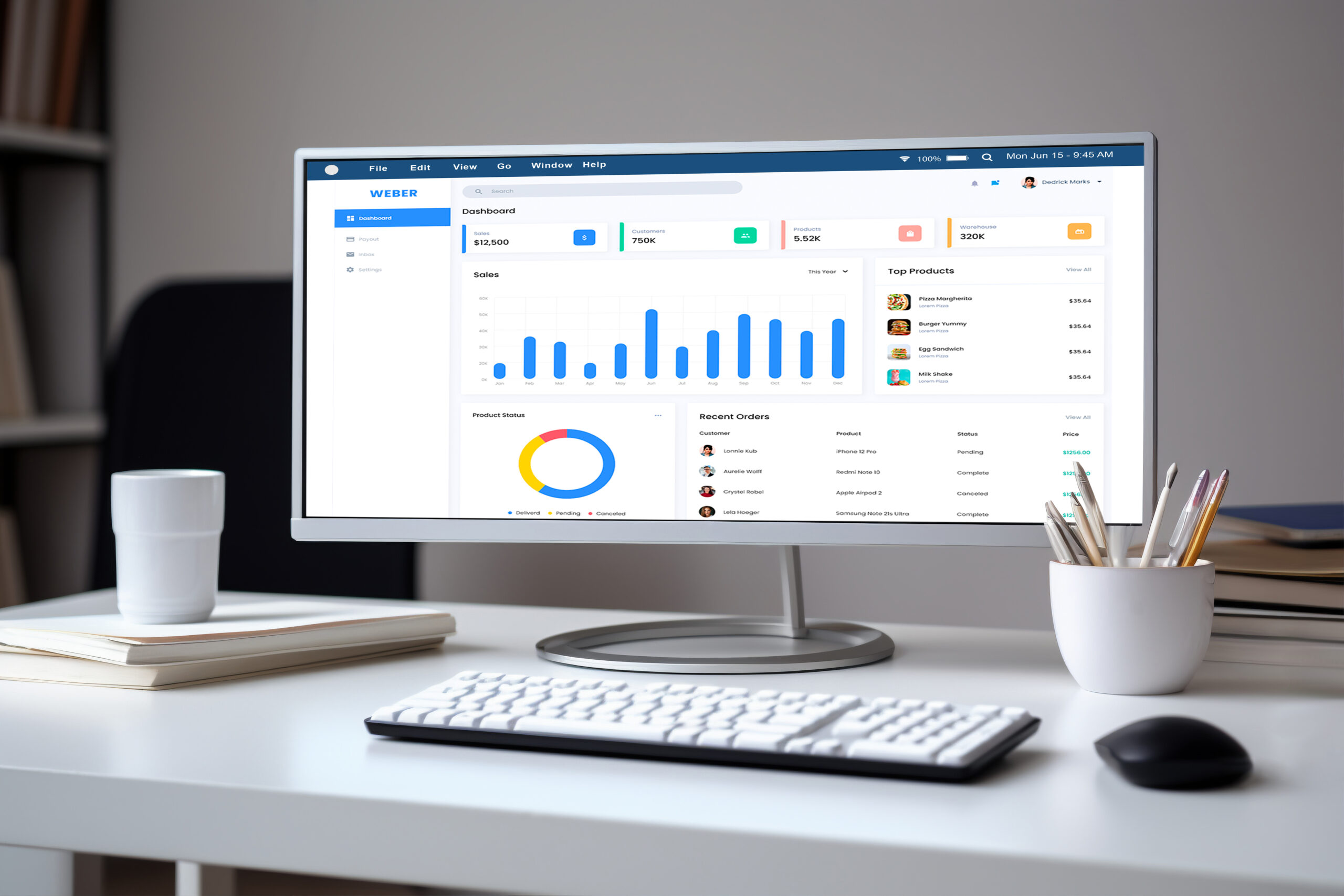WEB ANALYTICS - GOOGLE ANALYTICS & GOOGLE TAG MANAGER
 WEB ANALYTICS WITH GOOGLE ANALYTICS, GOOGLE TAG MANAGER, FACEBOOK PIXEL CONVERSION API, ETC.
WEB ANALYTICS WITH GOOGLE ANALYTICS, GOOGLE TAG MANAGER, FACEBOOK PIXEL CONVERSION API, ETC.

Here's a brief overview of setting up various web analytics and tracking tools, including Google Analytics 4 (GA4), Google Ads Conversion Tracking, Cookie Consent Mode V2, Facebook Pixel Conversion API, cross-domain tracking, and pixels for platforms like TikTok, Pinterest, LinkedIn, and Twitter
Google Analytics 4 ECOMMERCE TRACKING
Google Analytics 4 (GA4) Ecommerce Tracking is a powerful tool that enables businesses to track and analyze user interactions and transactions on their ecommerce websites or apps. Unlike its predecessor, Universal Analytics, GA4 operates on an event-based model, allowing for more flexibility and deeper insights into customer behavior across multiple touchpoints.
Core Ecommerce Events in GA4
To fully leverage GA4 for ecommerce tracking, it’s essential to track the following core events:
- view_item: Tracks when a user views a product page.
- add_to_cart: Captures when a product is added to the shopping cart.
- begin_checkout: Logs when a user initiates the checkout process.
- purchase: Tracks successful transactions and records revenue, items purchased, and other relevant details.
Benefits of GA4 for Ecommerce
- Improved Customer Journey Insights: By tracking user behavior across multiple platforms and devices, GA4 helps ecommerce businesses understand how users move through the conversion funnel, identifying potential drop-off points and optimization opportunities.
- Data-Driven Marketing: With access to detailed ecommerce data, businesses can make more informed decisions about marketing campaigns, product placements, and customer retention strategies.
- Future-Proof Analytics: GA4’s event-based model is more adaptable to changes in user behavior and technology, ensuring that businesses can continue to collect meaningful data even as privacy regulations and browsing habits evolve.
Data Analysis and Insights
- Reports Overview: Introduce the standard reports available in GA4 for ecommerce analysis.
- Custom Reports: Show how to create explorations or custom reports to dive deeper into user behavior.
- Insights Generation: Provide examples of actionable insights derived from the data, such as high-performing products or drop-off points in the purchase funnel.
Results and Impact
- Business Outcomes: Connect the analytics implementation to potential business improvements, such as increased conversion rates or better marketing ROI.
- Visual Aids: Include graphs, charts, or screenshots that illustrate key finding
GA4 Ecommerce Tracking with Server Side Tracking and CAPI
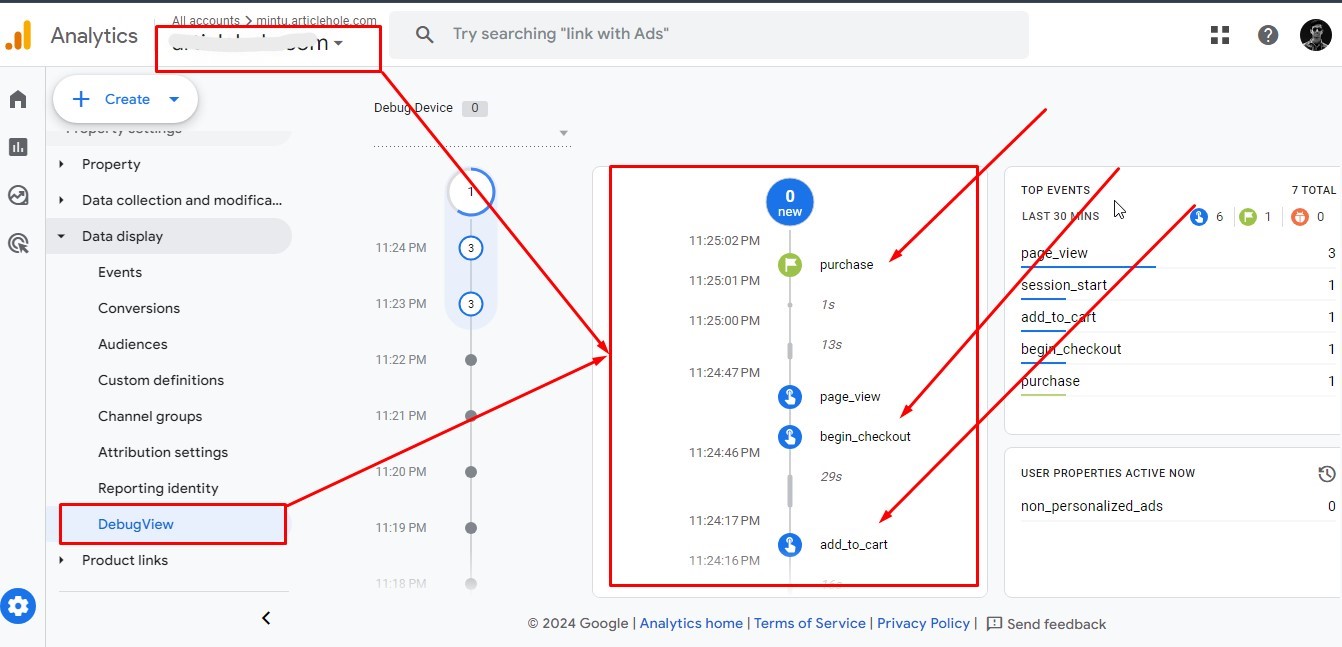
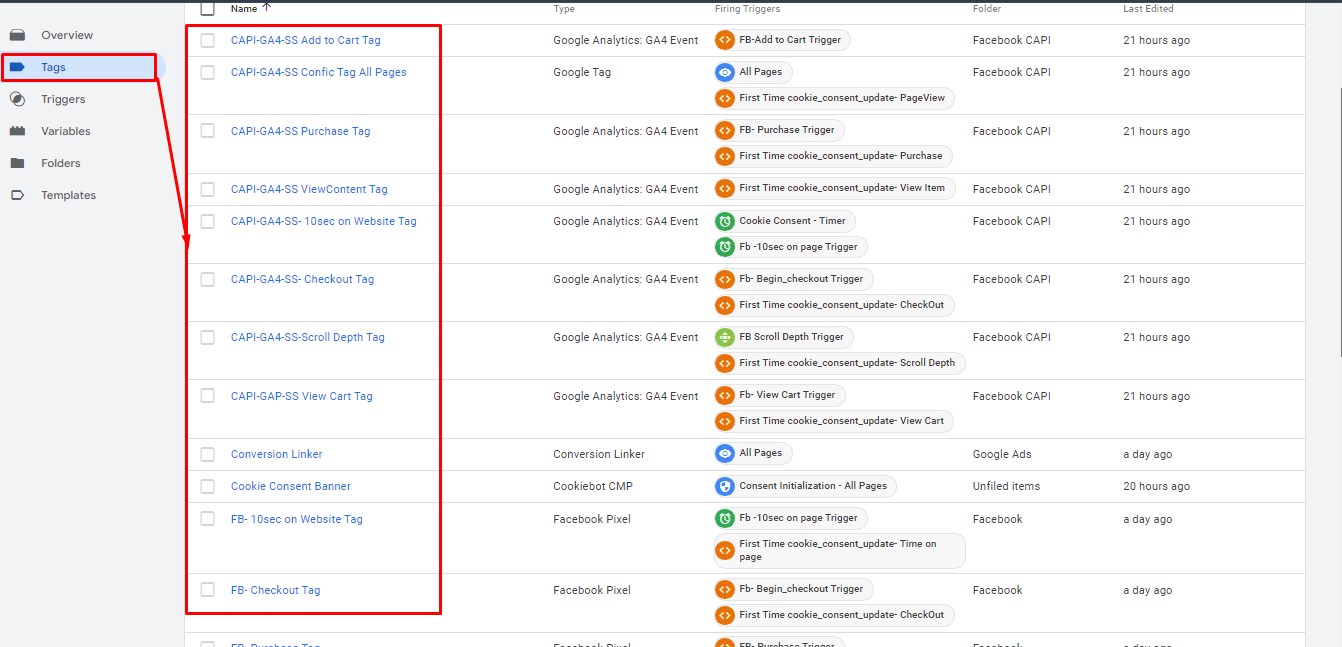
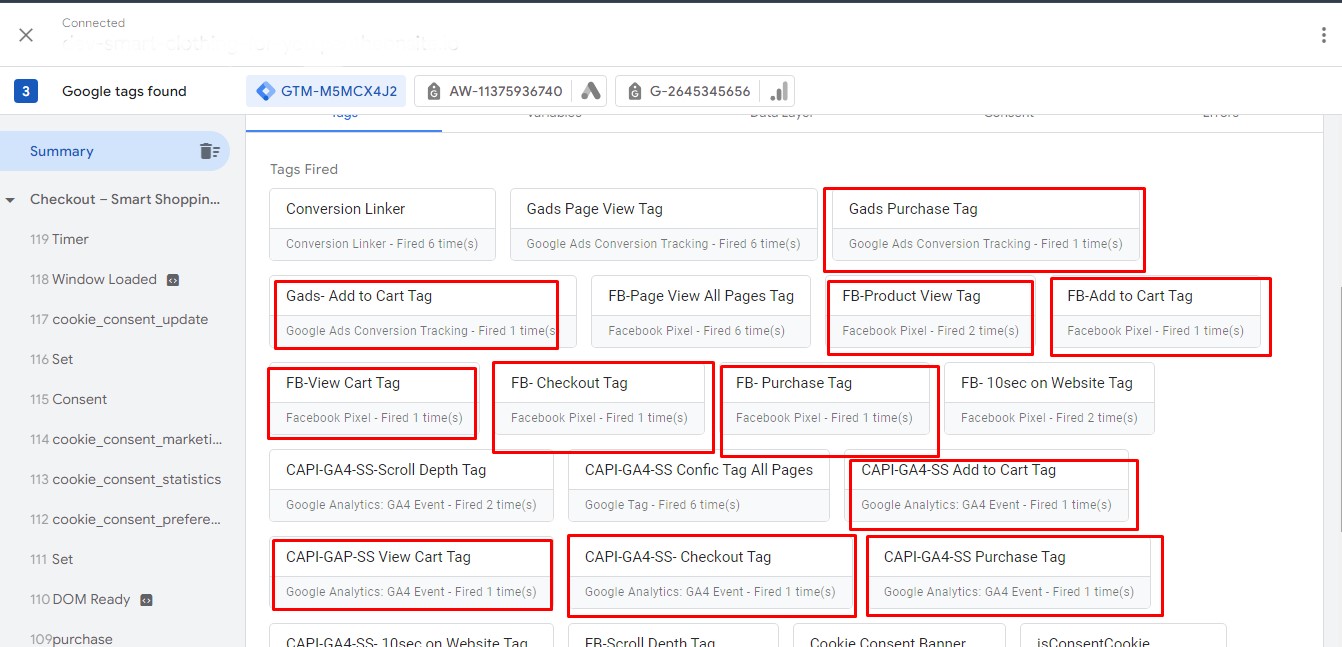
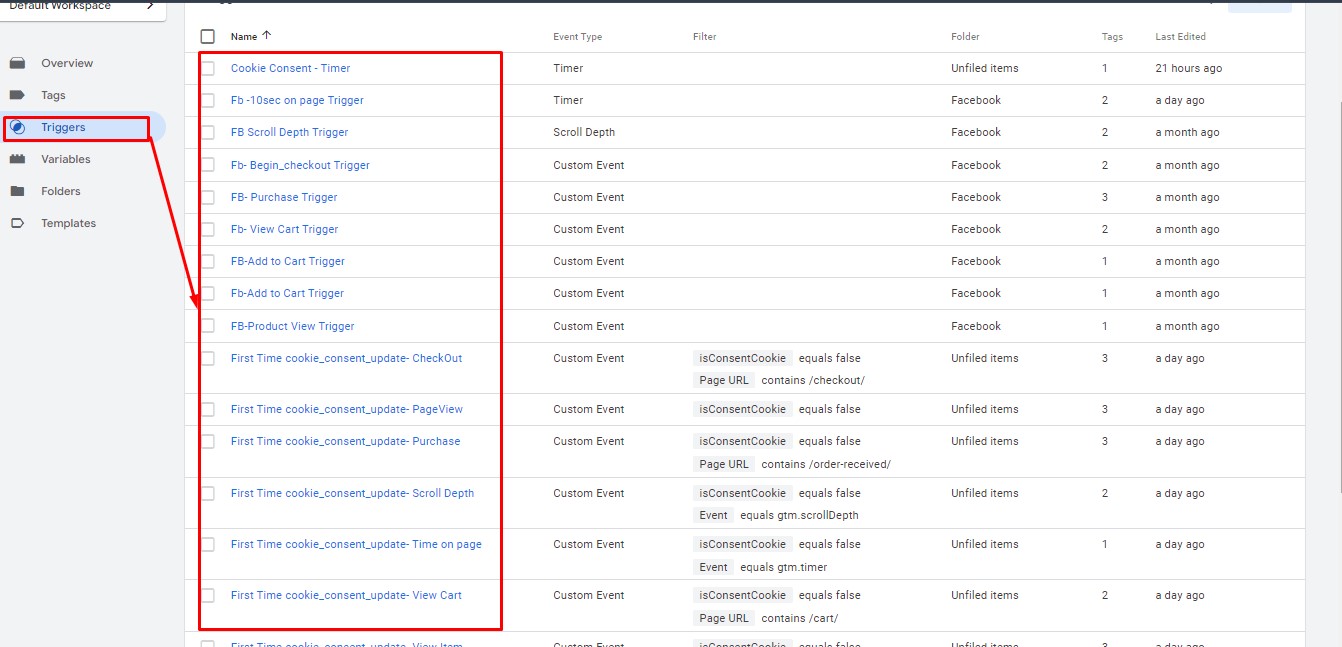






Facebook Pixel Conversion API Setup
By implementing targeted advertising strategies, including the creation of multiple ad groups and continuous optimization, the campaign achieved outstanding results. Over a three-month period, Brums Outfits saw a dramatic increase in clicks and conversions, leading to a remarkable return on ad spend. This case study illustrates how strategic campaign management can position a brand as a prominent player in the fashion industry.
Benefit of Conversion API
The Facebook Conversion API (CAPI) offers several key benefits for businesses looking to improve their ad performance and data tracking:
- Improved Data Accuracy: Since CAPI sends data directly from your server, it bypasses issues like ad blockers, cookie restrictions, and browser limitations, resulting in more reliable tracking.
- Enhanced Privacy Controls: CAPI aligns with privacy regulations like GDPR by giving businesses more control over the data they share, allowing for more secure handling of user information.
- Better Ad Optimization: By sending complete and accurate event data to Facebook, CAPI helps improve ad targeting, optimization, and reporting, which leads to more effective marketing campaigns.
- Consistent Data Flow: Unlike the Pixel, which can be affected by poor browser connections or crashes, CAPI ensures that important conversion data is captured even if the user’s browser fails.
- Advanced Insights: CAPI provides a fuller picture of user actions by integrating both online and offline conversion events, helping businesses understand their entire customer journey more thoroughly.
- Reduced Reliance on Cookies: As third-party cookies become less reliable, CAPI serves as a future-proof solution for tracking user activity across platforms.
- Overall, Facebook Conversion API enhances tracking precision, improves ad campaign effectiveness, and supports compliance with evolving privacy standards.


Cookie Consent Mode V2 Setup
Setting up Cookie Consent Mode V2 in Google Analytics 4 (GA4) allows websites to adjust data collection based on user consent choices, ensuring compliance with privacy regulations like GDPR and CCPA. This mode dynamically adjusts how cookies are used depending on whether users consent to advertising, analytics, or other types of data collection.

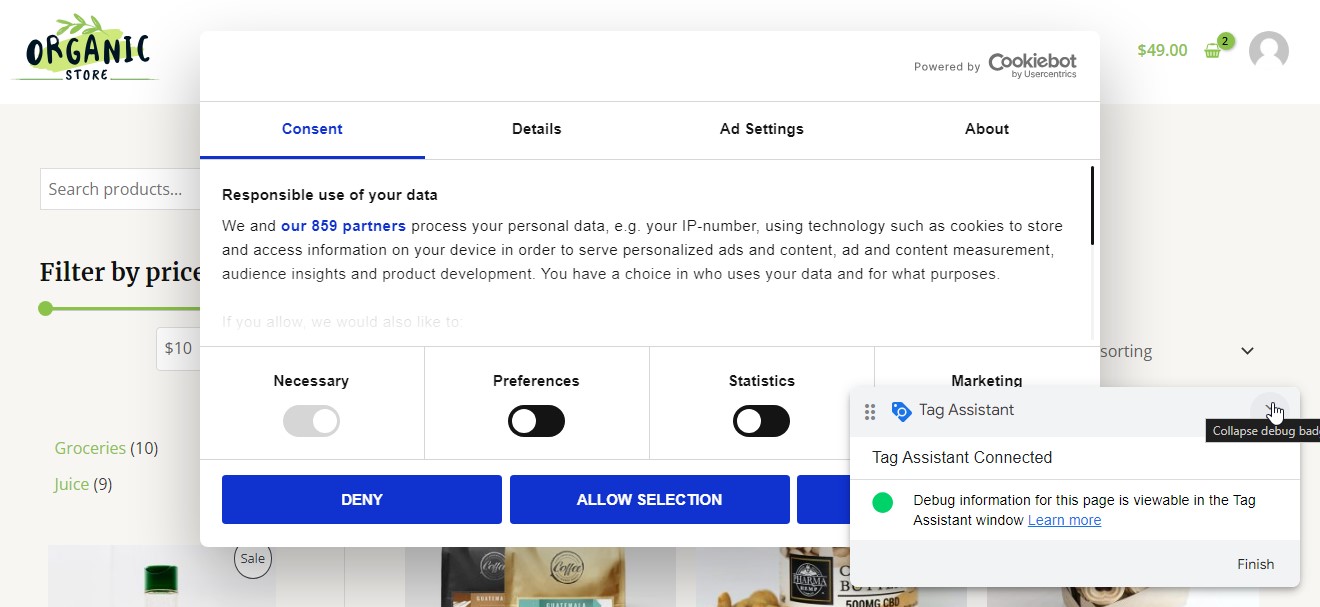
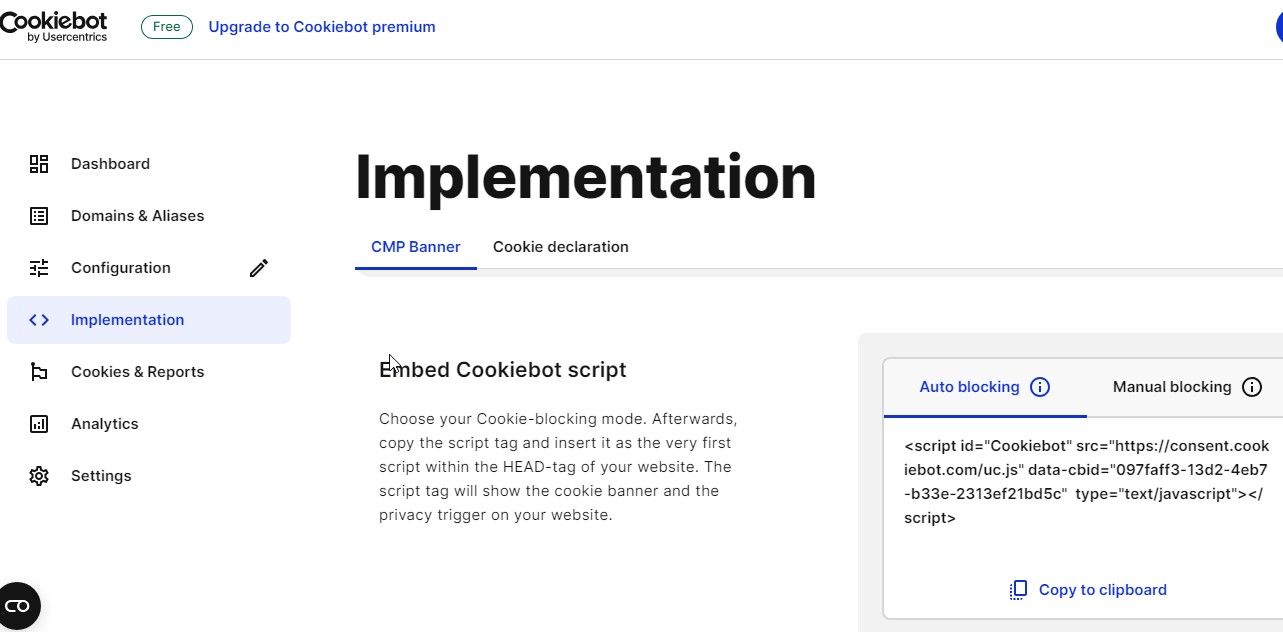
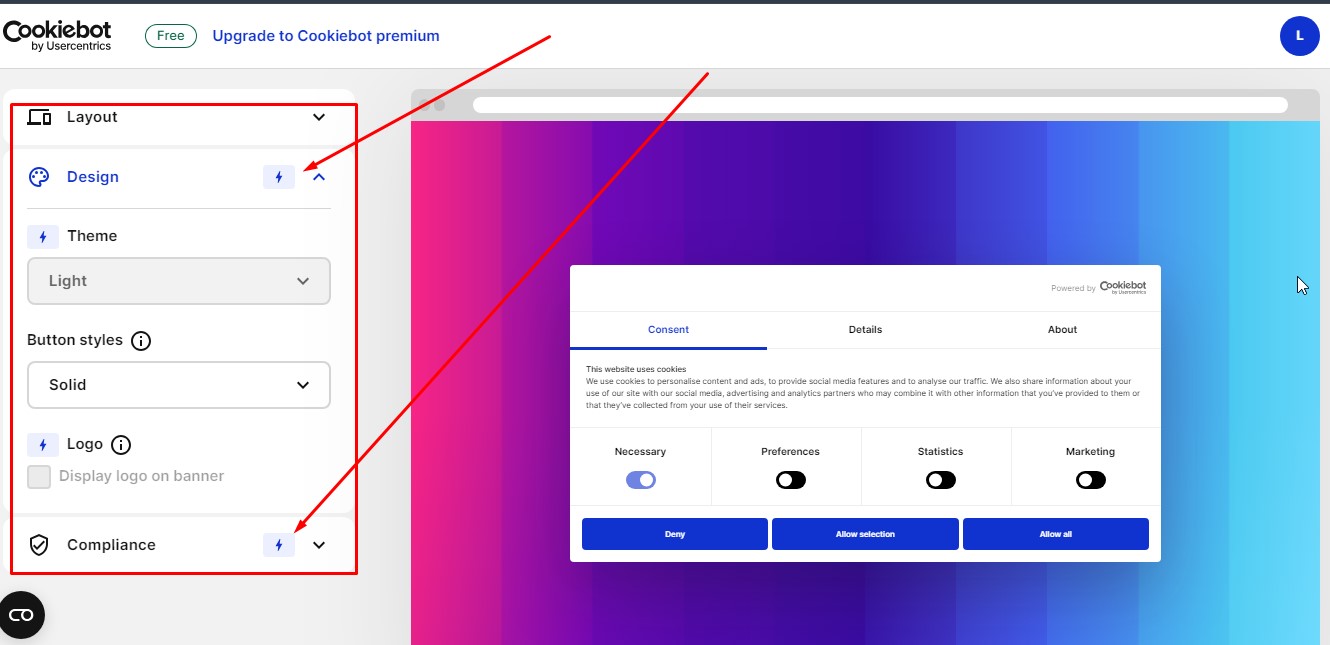
Google Ads Conversion Tracking
Google Ads conversion tracking is crucial for measuring the effectiveness of your ad campaigns. It allows you to track actions that users take after interacting with your ads, such as purchases, sign-ups, or form submissions.
Key benefits include:
- Performance Measurement: It helps you understand which ads, keywords, and campaigns drive conversions.
- ROI Optimization: Conversion data allows you to allocate budget to high-performing campaigns and reduce spending on ineffective ones.
- Ad Optimization: You can adjust bidding strategies (e.g., Target CPA or ROAS) based on actual conversions.
- Informed Decisions: It provides actionable insights for improving overall ad strategy and maximizing business results.
